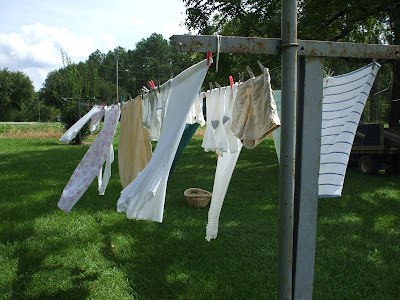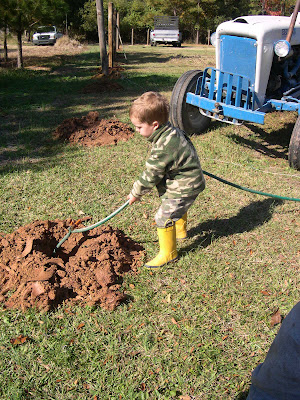I want to be like
this lady .
From the NY Times
August 25, 2003
Connie Reeves, a Cowgirl Until the End, Dies at 101
By DOUGLAS MARTIN
Connie Reeves, who was very likely America's oldest cowgirl, died in
San Antonio on Aug. 17, 12 days after she was thrown from her horse, Dr Pepper.
She was 101.
She was riding her favorite horse, a 28-year-old paint, on the morning
of Aug. 5 when Dr Pepper threw her over its head. Her neck was broken, but she
was not paralyzed, The Kerrville (Tex.) Daily Times reported. The Associated
Press said she died of cardiac arrest.
Meg Clark, owner of Camp Waldemar in the Texas Hill Country, where Mrs.
Reeves taught riding for 67 years, said she had been riding more this year than
in previous years and was delighted that Dr Pepper remained so spirited.
''That was how she wanted to live her life, and that was how she wanted
to end it,'' Ms. Clark said on Wednesday. ''She wanted to be on horseback.''
As a baby, Mrs. Reeves was photographed on a horse -- as well as on a
cow, something she could never quite explain -- and went on to manage a ranch
and teach about 30,000 girls to ride over the years at a summer camp. She could
herd steers, shear sheep, kill rattlesnakes and cook for hungry cowhands.
At first she did not think she deserved to be inducted into the
National Cowgirl Museum and Hall of Fame in 1997, but then decided she had as
much right as the next lady, given the things she had done and the things she
knew.
She knew, for example, that a horse could smell fear. When she ended up
with one leg shorter than the other after falling from a horse, she did the
sensible thing: she had the heel of one cowboy boot raised.
Mrs. Reeves's greatest fame came last year when Justice Sandra Day
O'Connor of the United States Supreme Court was inducted into the Cowgirl Hall
of Fame in Fort Worth. Reporters could not resist interviewing the hall's oldest
member, whom the event's organizers were more than willing to make available.
After all, a quotation from Mrs. Reeves, ''Always saddle your own
horse,'' had almost become the hall's motto. Liz Smith began a gossip column by
suggesting, ''It's not a bad motto, even if you are just getting into your
Mercedes.''
Many things Mrs. Reeves did seemed to make history, particularly in
Texas.
She was one of the first women to study law at the University of Texas,
and she started one of the state's first girls' drill teams, a movement that
grew into a Texas passion. The 10,000-acre ranch she and her husband managed was
owned by Lyndon B. Johnson.
In 1998, Mrs. Reeves won the Chester A. Reynolds Award for major
contributions to the Western way of life from the National Cowboy and Western
Heritage Museum in Oklahoma City, one of two women to do so.
Constance Douglas was born on Sept. 26, 1901, in Eagle Pass, Tex., on
the Mexican border. She swam in the Rio Grande and rode horses with cowboys. Her
grandfather gave her her first horse when she was 5. The family moved to San
Antonio when she was 16.
Her father was a lawyer, and her mother was so genteel that she refused
to go to the grocer's without gloves and a hat.
Mrs. Reeves graduated from Texas Women's University in Denton as a
speech major and then attended the University of Texas School of Law, but left
to take a job because her family was short of money in the Depression. She
taught at two San Antonio high schools. At one, Thomas Jefferson High, she
founded a drill team called the Lassos, which is still in existence.
She also started a riding stable to teach city boys and girls how to
ride and care for horses. Although the stables were successful, she accepted a
position as riding instructor at Camp Waldemar in 1936 for $50 a summer. She
eventually taught Western and English riding styles to the granddaughters of her
original students.
She came to the conclusion that horses respond best to women.
''The harsh voices and rough bark of boys and men seem to frighten
horses,'' she wrote several weeks before her death in a script for a video about
riding. ''The same horse that refused to take the bit in its mouth will accept
it from the more gentle hands of a girl.''
At the camp she met Jack Reeves, a former rodeo star, trick rider and
keeper of the camp's horses. They married in 1942; he died in 1985. They had no
children, and she left no immediate survivors.
''I'm sure glad I don't have grandchildren,'' she said in an interview
with The Associated Press last year. ''The world today, it's disturbed.''
The cowgirl found her own peace on a horse.
''I still ride alone,'' Mrs. Reeves said in an interview with National
Public Radio last year. ''Sometimes I'll just get on the horse and go down to
the river. We'll just ride up and watch a little baby fawn nursing or watch the
birds in a nest.
"As long as I'm alive, I'm going to be trying to ride a horse.''


















 Sit in fence-post holes.
Sit in fence-post holes. Hmmmm....
Hmmmm....
 Oh - yes, I suppose you ought to get those boots out of there.
Oh - yes, I suppose you ought to get those boots out of there.

